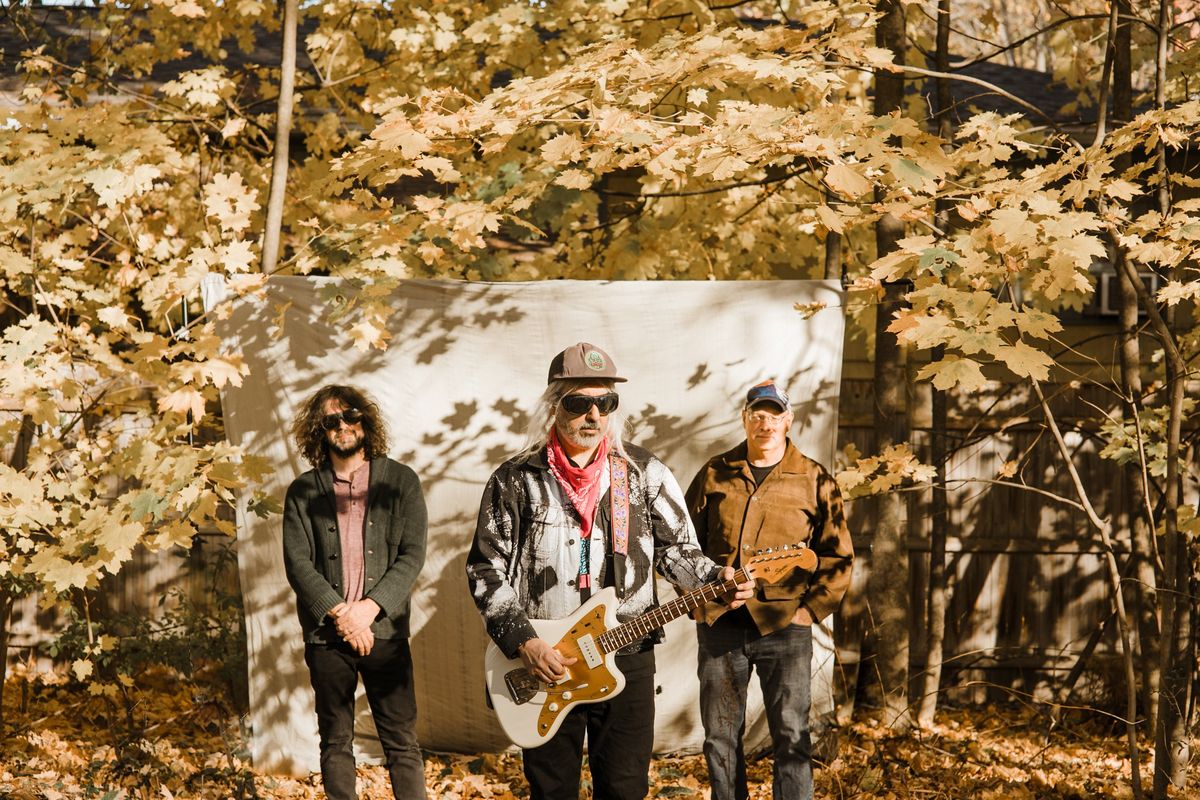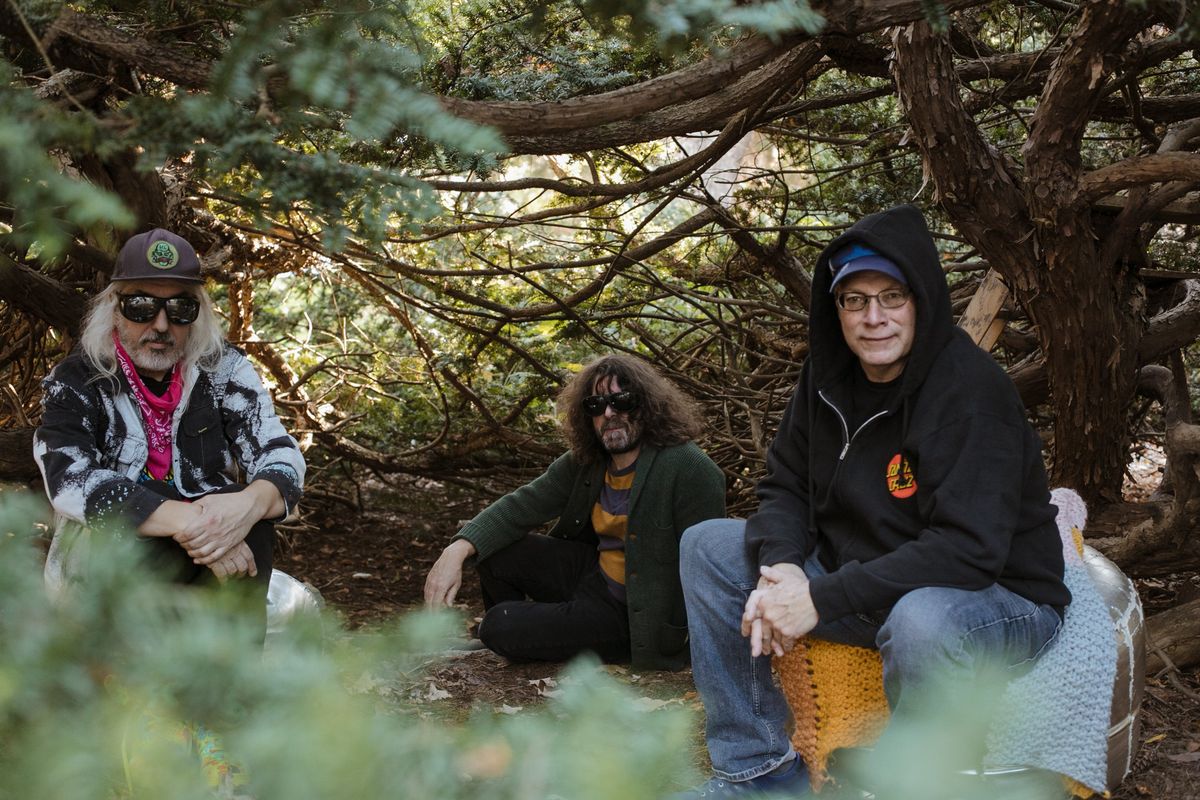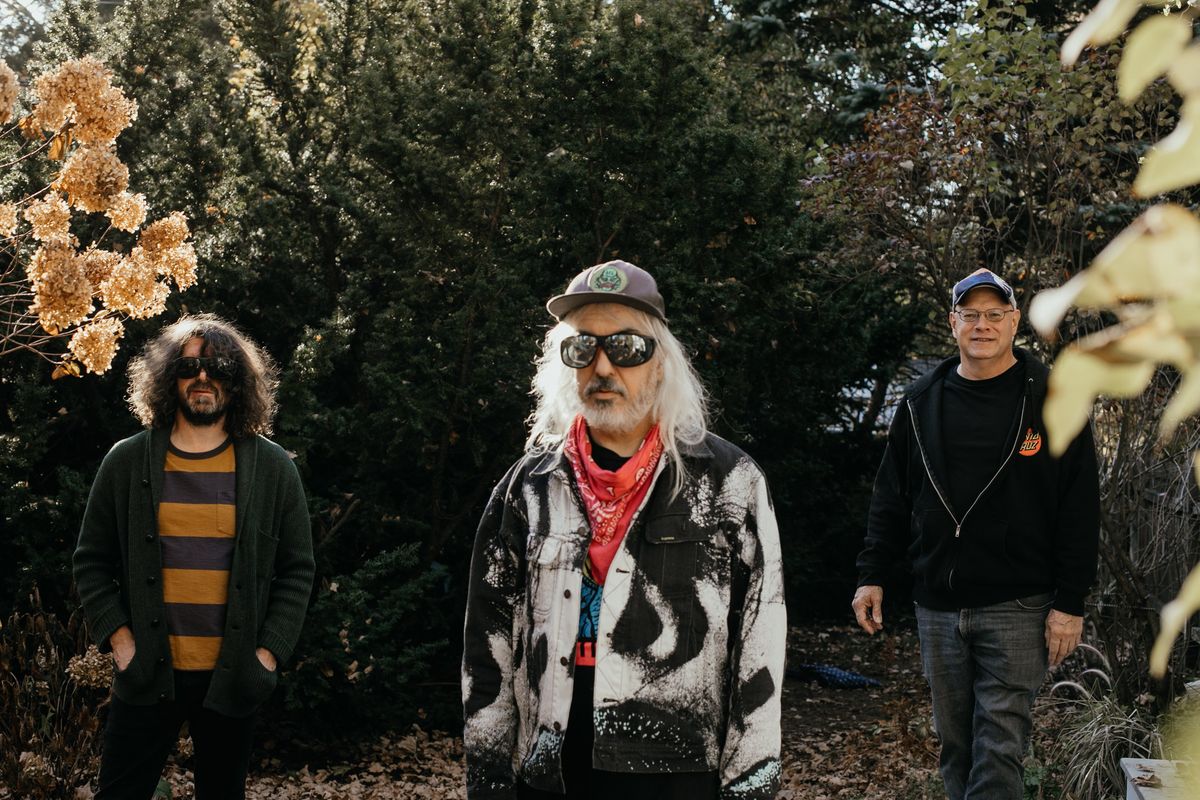Guitar hero: Dinosaur Jr. frontman J Mascis talks Kurt Cobain, Phil Spector, Lou Reed – and two reality-TV shows he watches
Dinosaur Jr. – Lou Barlow, J Mascis and Murph – headline Knitting Factory on Monday night. Their latest album is titled “Sweep It Into Space.” (Cara Totman Photography)
Much has changed in a generation for indie rock bands. Recording artists like Dinosaur Jr., Camper Van Beethoven and Sebadoh were performing to half-filled clubs during the late 1980s. Nowadays, these three acts are packing theaters. Dinosaur Jr., which headlines Monday night at Knitting Factory, has been selling out 2,000-capacity theaters during its current tour, which supports the band’s latest album, “Sweep It Into Space.”
Dinosaur Jr. frontman J Mascis, 56, called from his Amherst, Massachusetts, home and details what it was like to meet volatile legends such as producer Phil Spector and seminal rocker Lou Reed. The laid-back guitar hero with the slow and deliberate Massachusetts drawl also reveals what reality TV show he enjoys and what Kurt Cobain offered him in Hoboken 33 years ago.
Are you surprised that Dinosaur Jr. is more popular on the road now than your band was a generation ago?
Sure. I’m always surprised.
I noticed that there are quite a few fans at your shows who were born after your initial run ended in 1997.
Yes, there are some younger fans. More people my age aren’t going out and are just staying home, so I guess it is the younger fans who are coming out.
Who did you see when you were growing up in Western Massachusetts?
My first concert was Mick Ronson and Ian Hunter opening for the J. Geils Band. I saw Peter Tosh, Rick Derringer and the Outlaws when I was really young. Then I saw Mission of Burma when I got into the punk rock scene.
You were a drummer then, correct?
Yeah, I was into Charlie Watts, Ian Paice and John Bonham when I was a kid.
What was it like watching the Dinosaur Jr. documentary “Freak Scene” with indie rock icons such as Sonic Youth’s Thurston Moore, Kim Gordon and My Bloody Valentine’s Kevin Shields gushing over you and your band?
It was interesting to watch it. It’s different than most music documentaries that are just so sex, drugs and rock and roll. We were this weird, cerebral band that was into psychotic mind games.
Dinosaur Jr. was a huge part of the indie rock explosion of 1988 with your seminal album, “Bug.” Much has been written about 1991, aka “The Year That Punk Broke,” but the seeds were planted in 1988.
Yeah, sure. Nirvana came out of that. They were the band destined to make it big or not. I’m not sure they wanted to make it big. Making it big was different with each band. For us, making it big was being on a (punk) label like SST. There were a lot of bands back then that were content with that and not being truly big.
Like the Replacements, who were vocal about their desire to stay away from the mainstream. “I Don’t Know” is a song of theirs that lays it out. “One foot in the door / The other one in the gutter / The sweet smell you adore / I think I’d rather smother” summed up their career aspirations.
I get it. Not everyone wants that kind of success.
Fame is currency today. Do you ever watch the music reality-TV shows?
Yes. I find “American Idol” and “The Voice” fascinating, but I don’t relate to them. I like to watch to see what these people are thinking. It’s interesting with “The Voice” early on during the first couple of weeks when the chairs are turned around and they (the judges) just listen (to the contestants). They don’t see the person (singing). It’s just weird, but I find it interesting.
Thurston Moore said he and the rest of Sonic Youth and you saw Nirvana at a club gig in Hoboken in 1989. Moore said that Kurt Cobain couldn’t believe you guys were there.
Yeah, I was there. You can see that show on YouTube. I was definitely a fan. Kurt came up to me and said I should join his band.
Was he serious?
Yes.
It’s hard to imagine you as the second guitarist in any band.
You could tell the drummer (Chad Channing) with them at that time wasn’t that great, and Kurt wasn’t crazy about the band’s other guitarist (Jason Everman).
When (drummer Dave) Grohl joined the band, it worked out for them. But I was hoping the Melvins drummer (Dale Crover) would stay with Nirvana. I thought they sounded awesome with him when they were opening for Sonic Youth (in 1990).
Bob Mould was great in the “Freak Scene” doc, but when I saw him perform a month after Nirvana’s “Nevermind” went through the stratosphere, he complained about Nirvana’s success and wondered why it didn’t happen for his band, Husker Du.
Bob just doesn’t have the voice of Kurt Cobain, who had this amazing voice that sounded like (Cheap Trick’s) Robin Zander or (Bad Company’s) Paul Rodgers or someone you would hear on the radio.
Speaking of Kurts, why did you ask Kurt Vile to produce “Sweep It Into Space” when he has no producer credits?
I had him work on my solo album (“Elastic Days”). He thinks of things I wouldn’t think of. It’s good to have someone different around. He made (bassist) Lou (Barlow) and (drummer) Murph relax.
I love the new tune “I Met the Stones.” You’ve worked with some iconoclasts. Who were the most intimidating?
I met Phil Spector once, and he was cool, but that didn’t turn out so well for him. I met Lou Reed. I didn’t know how that was going to go. I had this driver who took me to the studio in New Jersey every day from New York, and he told me he drove Lou Reed for a week and that made him want to burn all of his Lou Reed records. I met Lou when I played Joe’s Pub in New York with Pete Townshend. Lou came up and played some Velvet (Underground) songs with Pete, and he was having a really good time. (Actor) Matt Dillon told him that he should see me play. He told me that he liked the way I played, and I told him that I have all of his stuff. I was lucky to have met him when he was in a good mood.
More than 30 years have passed since you covered the Cure’s “Just Like Heaven,” and it’s still part of your set. What did the Cure think of your rearranged version?
I think Robert Smith liked it. I heard he said we should have done it their (Dinosaur Jr.) way.
Your cover was recorded not too long after the original was recorded, which reminds me of the Pixies’ cover of the Jesus and Mary Chain’s “Head On,” which was recorded months after the Reid brothers’ song dropped.
He (Pixies frontman Black Francis) wasn’t that hip when it came to modern music. He heard “Head On” and just loved it. The Pixies were a strange band.
It was an acrimonious split when Lou Barlow left Dinosaur Jr. a generation ago. Why is it working out so well now with Lou?
It’s not that much different. We all have gone through whatever in life. I think we realized that we have something cool with this band, and we appreciate it.
You often perform seemingly without noticing the audience. What goes through your mind when you take the stage?
I’m kind of scared of the crowd. It intimidates me.
That’s interesting since when I remember seeing Dinosaur Jr. at Lollapalooza in 1993, some scenesters backstage were intimidated by you and were caught up in your mystique since you weren’t saying much during interviews.
I don’t like talking that much. You know, I had this weird experience when I bought a Black Sabbath reissue of “Sabotage,” which is my favorite Sabbath album. I know that album inside and out. I bought this reissue from England, and I had the weirdest feeling. When I listened to the album, my body didn’t recognize it. I think it was because the vinyl was recorded from a CD. It was a weird experience.


